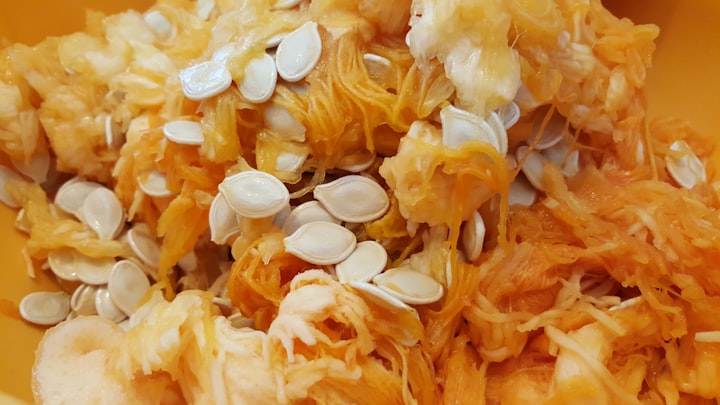Health Benefits of Kale That you Need to Know
Boosting the immune system with Kale

Kale is a leafy green vegetable that has gained popularity recently due to its numerous health benefits. It belongs to the cruciferous vegetable family, which includes other superfoods like broccoli, cauliflower, and Brussels sprouts. Kale is low in calories but high in nutrients, making it an excellent addition to any diet. In this article, we will discuss the health benefits of kale that you need to know.
Nutrients and minerals in Kale
Kale is packed with essential nutrients and minerals that our bodies need to function correctly. One cup of raw kale contains the following nutrients:
Vitamin C: 134% of the recommended daily intake (RDI)
Vitamin A: 206% of the RDI
Vitamin K: 684% of the RDI
Vitamin B6: 9% of the RDI
Calcium: 9% of the RDI
Potassium: 9% of the RDI
Magnesium: 6% of the RDI
Kale is also a good iron, copper, manganese, and phosphorus source. These vitamins and minerals make it easy to see why kale is considered a superfood.
Health benefits of Kale
- High in antioxidants: Kale is a potent antioxidant that helps to neutralize harmful free radicals in the body. Antioxidants help to protect our bodies from chronic diseases like cancer, heart disease, and Alzheimer's.According to the American Heart Association (AHA), it is advisable to enhance potassium consumption while limiting the intake of added salt or sodium, as this can help lower the risk of developing high blood pressure and cardiovascular illness. A serving of cooked kale can supply approximately 3.6% of the recommended daily potassium intake for adults.
- Promotes heart health: Kale is rich in fiber, which can help to lower cholesterol levels and reduce the risk of heart disease. The high levels of vitamin C and potassium in kale also help to support heart health.
- Diabets: The American Diabetes Association suggests that including foods that are packed with vitamins, minerals, fiber, and antioxidants in one's diet is beneficial in preventing diabetes. Research has indicated that some of these nutrients can offer protection against diabetes.For instance, a study conducted in 2018 found that individuals who consume high amounts of dietary fiber have a lower likelihood of developing type 2 diabetes. The authors of the study also suggest that consuming dietary fiber can potentially reduce blood glucose levels.Another factor to consider is the role of antioxidants in the prevention of diabetes. A 2012 article states that high blood sugar levels can trigger the production of free radicals. The article notes that antioxidants, such as alpha-linolenic acid (ALA) and vitamin C, can help to reduce complications associated with diabetes. Kale is a rich source of both of these antioxidants.
- Improves bone health: Kale is an excellent source of vitamin K, which is essential for bone health. Vitamin K helps to regulate calcium absorption and may help to prevent osteoporosis.
- Skin and Hair: Kale contains beta-carotene, a carotenoid that can be converted into vitamin A by the body as needed. Both beta-carotene and vitamin A play a vital role in maintaining and developing all body tissues, including skin and hair. Additionally, kale is rich in vitamin C, which is essential for the production and upkeep of collagen, a protein that provides structure to bones, skin, and hair. A single cup of cooked kale can fulfill more than 20% of a person's daily requirement for vitamin A and over 23% of their daily need for vitamin C.
- Eye Health:Kale is a rich source of lutein and zeaxanthin, which are antioxidants that can work together to decrease the likelihood of age-related macular degeneration. In addition to this, kale also contains vitamin C, vitamin E, beta-carotene, and zinc, all of which contribute to maintaining good eye health.
- Aids digestion: Kale is high in fiber, which can help to promote healthy digestion. The fiber in kale can also help to keep you feeling fuller for longer, reducing the likelihood of overeating.
- Anti-inflammatory properties: Kale contains a compound called sulforaphane, which has anti-inflammatory properties. Inflammation is linked to many chronic diseases, so consuming foods with anti-inflammatory properties can help to reduce the risk of these diseases.
Conclusion
Kale is a nutrient-dense superfood that is packed with vitamins, minerals, and antioxidants. It is low in calories and high in fiber, making it an excellent addition to any diet. The health benefits of kale are numerous, including promoting heart health, improving bone health, aiding digestion, and reducing inflammation. So, if you're looking to boost your health and wellness, consider adding kale to your diet.
About the Creator
Vivid Masonganyika
Hi there! My name is Vivid, and I'm a professional comic writer based in Zimbabwe. I'm passionate about comics, health research, and love stories, and I love sharing my knowledge and experiences with others.






Comments
There are no comments for this story
Be the first to respond and start the conversation.